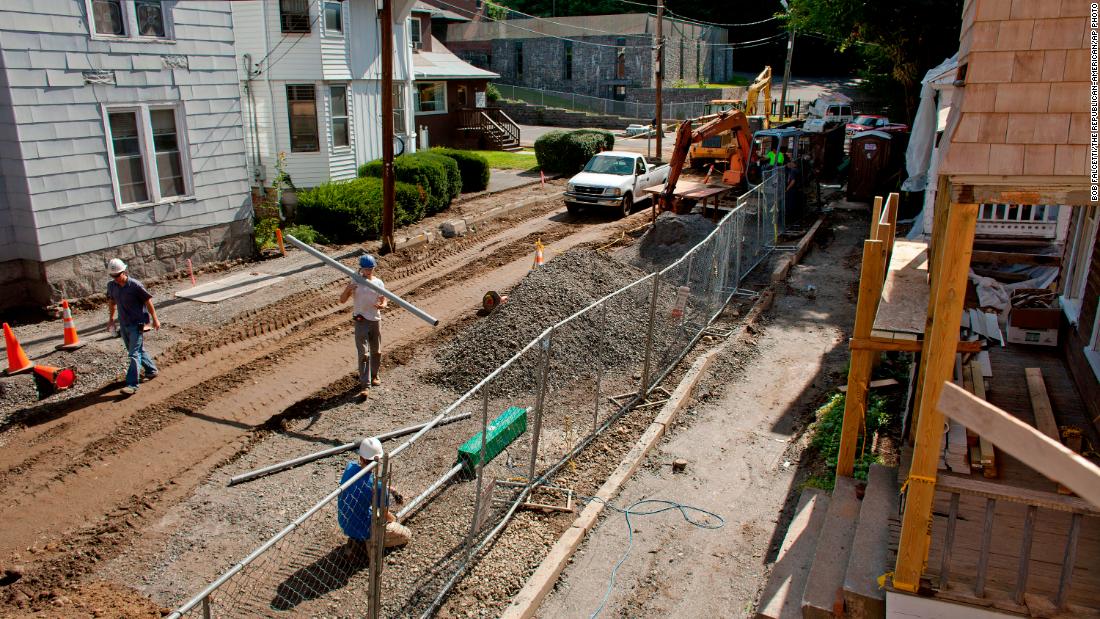
The framework is expected to unleash billions of dollars that have been building up since the "Opportunity Zones" program was enacted along with the Tax Cuts and Jobs Act at the end of 2017, potentially dwarfing existing incentive programs — and saving investors a bundle in the process.
Goldman Sachs Group, which two decades ago stood up a unit for funding projects in struggling neighborhoods in the greater New York area, is among the investor groups hoping it can now capitalize on the new tax incentives. The firm began creating funds days after the tax law was passed last year.
The public now has 60 days to comment on the rules, which Treasury expects to finalize next year.
The Trump administration anticipates that the new tax policy will drive $100 billion in private capital to more than 8,700 communities across all of the US impacting nearly 35 million Americans, helping to create more jobs for American and spur economic growth.
"This incentive will foster economic revitalization and promote sustainable economic growth, which is a major goal of the Tax Cuts and Jobs Act," said Treasury Secretary Steven Mnuchin in a statement.
Friday's proposed regulations are aimed at helping clarify for investors what capital gains will qualify for deferral, which taxpayers and investments are eligible and other guidance. Investors have been sitting on the sidelines awaiting further information from Treasury before making the leap into new business deals in designated zones.
"Turns out, investors are very tax-sensitive," says Steve Glickman, a former Obama administration official who helped design the program and last month started a consulting firm to help channel capital towards projects in eligible zones. "And there has been an enormous response to the legislation, much more than I thought."
Last year's Republican-backed tax cut allows investors to defer taxes on capital gains if they're reinvested in a real estate project or business located in one of the nearly 9,000 qualified census tracts, and then to pay a reduced rate if the investment is held for certain time periods. Gains from investments held in the "opportunity funds" for more than 10 years are untaxed, in an exemption expected to cost $7.7 billion through 2022, according to the Joint Committee on Taxation.
That will allow investments with a lower expected pre-tax return — in the downtowns of depressed second-tier cities like Louisville or Cleveland, for example — to be more competitive with those in booming metropolises. Although the program currently only lasts until 2026, legislation has already been introduced to extend it.
While opportunity zones hold their designation for a decade, under the proposed regulation, investors can hold onto their investments if they keep it in a qualified fund through 2047 without losing tax benefits. Treasury said it will provide more guidance before the end of the year.
Along with Goldman, firms such as D.C.-based Fundrise and the hedge fund EJF Capital have been busy raising $500 million funds from high net worth individuals in order to be ready to deploy as soon as the rules are set in order to take advantage of the full duration of the tax cut. So far, large institutional investors have held back, but that may change now that Treasury has set the rules of the road.
Goldman could not immediately be reached for comment.
The program has come under some criticism by community organizations because many of the designated zones are in areas that are already rapidly gentrifying, fueling concerns that the additional capital could just super-charge displacement and handsomely reward investors for projects they would have funded anyway.
There is currently no central registry of funds that qualify under the rules of the program, since reporting requirements were stripped out during the process of passing the comprehensive tax reform package.
Glickman says the high-return projects will get snapped up quickly, but that investors will then move on to more marginal areas, especially if local politicians and chambers of commerce can put attractive deals in front of the fund managers who'll be allocating investor dollars.
"You're going to see, in the first phase of the program, lots of low hanging fruit, for sure," Glickman says. "So the stuff that was teed up to happen, if you're a smart developer, of course you're going to take advantage of the program."
Aside from excluding so-called "sin" businesses like casinos, the rules allow almost any kind of investment to qualify, from tech startups to to multi-family residential buildings, with no restrictions on affordability or the amount of capital that can qualify for favorable tax treatment. Other "enterprise zone" programs, such as the New Markets Tax Credit, have an annual cap and have shown little evidence of impact on poverty or incomes in the areas they target.
"The argument was that those programs failed in part because the capital was too diffuse to make an impact in any one location, and also that it had too many rules and regulations, and this was meant to be the antithesis to that," says Rachel Reilly, director of impact investing at the non-profit developer Enterprise Community Partners. "Enterprise is trying to figure out how we can capture some of this capital for the community development space."
No comments:
Post a Comment